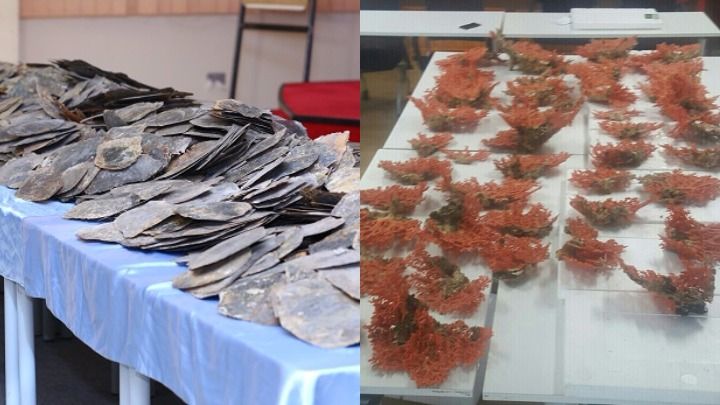Police seize turtle shells, red corals
Catching or killing of sea turtle species, as well as the importation and sale of turtles and turtle products, have been banned in the Maldives since 1995. The removal and sale of corals were also prohibited by the 1995 fisheries law.

02 Oct 2016, 09:00
The police have seized a large amount of turtle shells and red corals from Malé and the island of Buruni in Thaa atoll.
Catching or killing of sea turtle species, as well as the importation and sale of turtles and turtle products, have been banned in the Maldives since 1995. The removal and sale of corals were also prohibited by the 1995 fisheries law.
On Thursday afternoon, the police were tipped off by a member of the public and confiscated 41 pieces of red corals from the Ladhumaage house in the Maafanu ward of the capital. The corals were handed over to the ministry of fisheries and agriculture.
Inspector Mohamed Fazeen, deputy head of the general investigation department, told the press on Saturday that the corals were brought to Malé from the island of Dhuvafaru in Raa atoll. No arrests have been made but the police are searching for a suspect, he said.
Become a member
Get full access to our archive and personalise your experience.
Already a member?
Discussion
No comments yet. Be the first to share your thoughts!
No comments yet. Be the first to join the conversation!
Join the Conversation
Sign in to share your thoughts under an alias and take part in the discussion. Independent journalism thrives on open, respectful debate — your voice matters.




